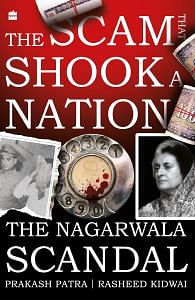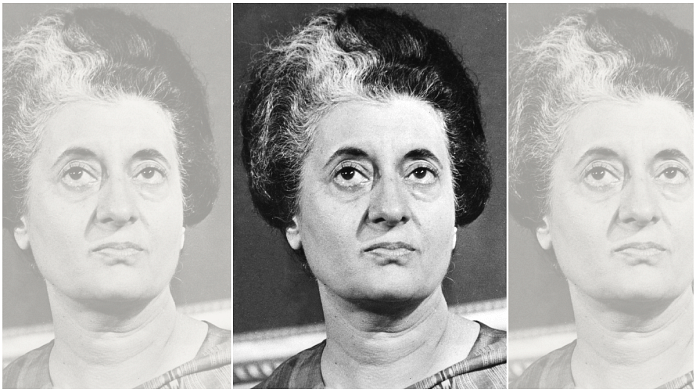Ved Prakash Malhotra leaned back in his chair. Monday mornings were usually busy for banks, but the chief cashier seemed relaxed. He had no reason to not be. Malhotra had joined the State Bank of India when it was known as the Imperial Bank twenty-six years ago, and had risen through the ranks to become chief cashier at the bank’s Parliament Street branch, a post specially created for him in recognition of his hard work and dedication. It was a position of trust and responsibility. That was eleven years back. Now forty-six, after a lifetime of hawk-eyed handling of cash at the SBI’s local head office at a sprawling building dating back to 1873, he could afford to relax a bit. What Malhotra didn’t know was that his life was about to change—and dramatically—that 24 May morning in 1971. It was 11.45 a.m.
Malhotra was in his cabin talking to a client when one of the three telephones on his desk rang. It was the direct number (45468), not the one connected to the SBI exchange or the intercom, which meant the call was from outside. The chief cashier picked up the phone. ‘Shri Haksar, secretary to the Prime Minister of India, wants to talk to you,’ said the voice at the other end.
‘Put him through,’ Malhotra replied.
There was a pause, then another voice came on the line, purportedly that of P.N. Haksar, the secretary to the Prime Minister. ‘I am secretary to the PM speaking.’ ‘Namaste,’ Malhotra replied. ‘What are your orders?’ ‘I have to talk to you about a very secret matter, and if there is anyone sitting in your room, he must be asked to go,’ the voice at the other end said. Malhotra placed a hand on the receiver and looked at the man sitting across the table. ‘Please, wait outside,’ he said. ‘I have an important call to attend.’ Mathura Das, retired honorary magistrate of Delhi, was a respected client, but it was not every day that one got a call from the Prime Minister’s secretary—that, too, about something ‘very secret’.
Das would later recall how taken aback he was at Malhotra’s ‘unacceptable’ behaviour. He had known Malhotra for a long time, and the chief cashier had always been courteous. As Das got up and stepped outside the glass cabin, Malhotra spoke into the phone again, telling the person at the other end there was no one else in the room. What followed was a series of terse, cryptic orders, not dissimilar to what readers of espionage stories would expect, but enough to arouse Malhotra’s interest and kindle long dormant feelings of nationalism.
‘The Prime Minister of India wants Rs 60 lakh to be sent for a work that is very highly secret in nature. She will send a person and you can hand over the money to him,’ the person at the other end told Malhotra.
The chief cashier asked whether the money would be handed over against a cheque or a receipt. ‘It is a very urgent and secret work. This is what the PM’s orders are. Receipt or cheque will be given The Loot 5 later,’ the voice replied, almost peremptory in tone, before going on to bark out further instructions. ‘Take the money in a van to the Free Church, because this money has to be sent to Bangladesh by an air force plane. This is a work of urgent nature and should not be disclosed to anyone, and you should come soon.’ In his long career at the bank, Malhotra had never been in such a situation. Handling cash demanded total attention, but this was different. ‘It is a very difficult task,’ he stammered.
‘Then you talk to the PM of India, Smt. Indira Gandhi,’ the voice replied, and a moment later, Malhotra heard a familiar voice come on the line. ‘I am the PM of India Smt. Indira Gandhi speaking.’ Malhotra couldn’t believe he was speaking to Indira Gandhi. At the other end, the new voice came directly to the point. ‘As my secretary has just now informed you, Rs 60 lakh is urgently required in Bangladesh for an important secret work. Get it ready quickly. I am sending my courier. At the place indicated by Haksar, you hand over the money to him.’ Malhotra was now confident that the voice on the other side was that of the Prime Minister of India. He relaxed. ‘How will I be able to identify the person?’ he asked. ‘The person will talk to you in code words and will say, “I am Bangladesh ka babu.”
You reply, “I am Bar-at-Law.” By this, you will be assured that he is my courier. Thereafter, you proceed as he says,’ the person at the other end replied. ‘After delivering the money, come straight to my house and you will get a receipt.’
Then the line went dead. Conversation over.
For long, Malhotra, a victim of the Partition and a migrant, had been wanting to do something for the nation. But the opportunity had never arisen and he had immersed himself in his unspectacular, though steady, bank job. Now, all of a sudden, fate had thrown him a line to redeem himself in his own eyes.
It was true that what he had been told to do was fraught with uncertainty, but how many like him had had the privilege of receiving orders directly from the Prime Minister? Malhotra would later say he was ‘spellbound’ after speaking to Indira Gandhi. But there was little time to waste. The chief cashier got up and stepped out of his cabin, only to see Das standing outside. It was clear the elderly client was upset at being asked to step outside Malhotra’s cabin. Malhotra, too, had sensed the older man’s feelings of hurt. He apologized, touched Das’s knee and said, ‘I am going on an important mission of national importance.’
 This excerpt from Prakash Patra and Rasheed Kidwai’s ‘The Scam that Shook a Nation’ has been published with permission from HarperCollins India.
This excerpt from Prakash Patra and Rasheed Kidwai’s ‘The Scam that Shook a Nation’ has been published with permission from HarperCollins India.



